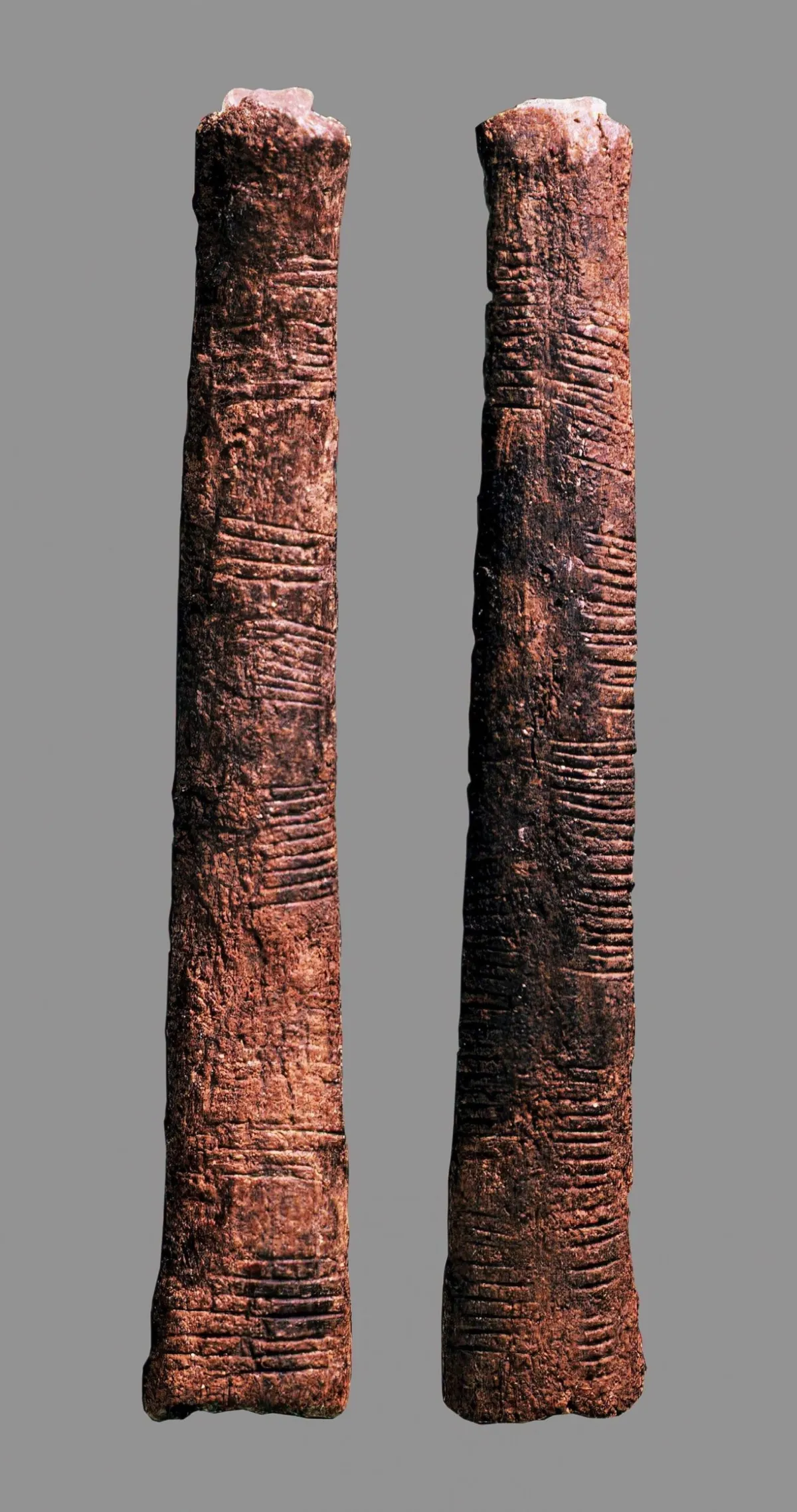Is maths a tool?
One way of seeing maths is as a tool that we harness to make our lives easier. Today, maths underpins everything from the functioning of our phones to the architecture of the buildings we live in. But it started out as something even more basic: as a way of keeping count. The earliest evidence for this is prehistoric tally sticks, such as the ‘Ishango bone’. This 20,000-year-old baboon’s bone was found in Central Africa, carved with what look like tally marks. Another useful tool came along in the 7th Century AD, when the Indian mathematician Brahmagupta formally wrote down the rules for computing with zero and negative numbers. This provided a way of quantifying an important real-world concept: debt.

Is maths a language?
Just as conventional languages have an alphabet, vocabulary and grammar, so maths has the symbols 1-9, operators such as ‘+’ and ‘÷’, algebraic letters, and conventions on the correct way to write an equation or compute a sum. Maths today is a language that is ‘spoken’ around the world, regardless of nationality or geography. A key difference with the language of maths, though, is that there’s an objectivity to it. Whereas two plus two will always equal four, the language of communication shifts over time and space, depending on how humans define and use it. New maths doesn’t overwrite previous work – it just adds a new detail to our understanding of the abstract world of numbers.
Is maths our entire reality?
The idea that everything can be described and explained by maths can be traced back to the work of the Greek philosopher Pythagoras, who held that “all is number”. We now know that our Universe is governed by the laws of physics, which can be expressed mathematically. This has led some, such as the cosmologist Max Tegmark, to argue that everything in the cosmos, from cells and particles, to giraffes and galaxies, cannot only be described in terms of maths, but is literally made of maths. Others point out, though, that maths struggles to describe some aspects of our lives, such as morality, emotions, or the colour yellow. The true relationship between maths and reality is a debate that’s likely to rumble on for some time yet.
Read more: